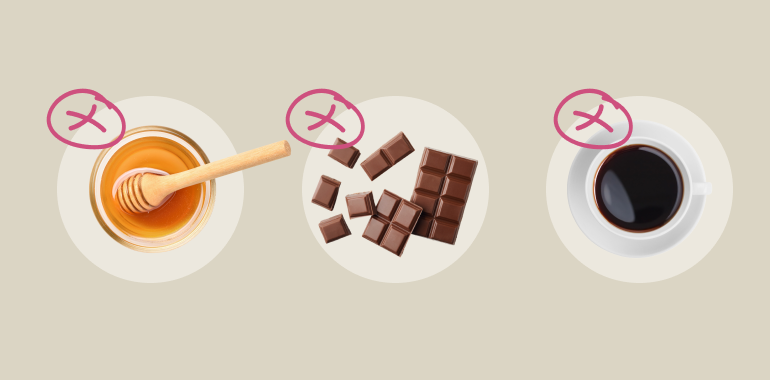Table Of Contents
Introduction: What is the Menstrual Cycle During Weight Loss?
The menstrual cycle is a vital part of any woman’s health, and its effects on weight loss efforts should not be overlooked. The menstrual cycle can affect how healthy dieting and exercise routines work when attempting to achieve weight loss goals.
Every monthly cycle brings unpleasant and frustrating changes to many women’s bodies. These discomforts include hormonal and behavioral changes that can make weight reduction much more complicated than it already is. But it is still feasible to lose weight when on your period.
Depending on where one is in the cycle, specific hormonal changes could impact metabolism rate, hunger signals, and cravings.
Therefore, women must understand the basics of their menstrual cycle to tailor their weight loss program accordingly to succeed. Working closely with a medical professional is also recommended to ensure safe and effective results from a diet and exercise regimen.

This article examines how your menstrual cycle affects the hormones that control your body weight and discusses how premenopausal women can still lose weight.
Also, read – Does Intermittent Fasting Affect Your Period?
How Many More Calories Do You Burn on Your Period?
It depends, is the quick answer to the question, “Does menstruation burn calories.” Everyone has an individual resting metabolic rate (RMR). Your RMR is the number of calories your body expends while at rest, with no other activity.
You will automatically burn more calories if your RMR rises dramatically during your period. According to one study, RMR fluctuates significantly among women throughout their monthly cycles.
According to certain studies, you might burn a few extra calories during the luteal period. After ovulation, this phase starts, and it ends when menstruation begins.
One concern is how many more calories they tend to burn during their period. The answer may vary depending on the individual’s activity and physical state. However, many studies have indicated that metabolic rate increases from 3% to 5% during this time.
This higher rate can translate into a little extra calorie burn for those with active lifestyles and physically demanding jobs. While this might not seem like much, it can add up in terms of maintaining a healthy lifestyle, reducing stress levels, and helping women reach whichever fitness goals they set out to achieve.
Understanding the changes your body experiences during your menstrual cycle can provide valuable insight into staying mindful of your health and fitness habits.
Our metabolism is impacted by our menstrual periods. Our bodies need 100–300 extra calories during the luteal phase (the week before our period is due). This is due to the 10–20% rise in basal metabolic rate (BMR) during this period, which is the number of calories needed each day to maintain life. So it makes sense to increase the spaghetti we eat or cut a little cake.
Although exercising following the various phases of your menstrual cycle does alter your body as you work out, you don’t burn extra calories when you’re on your period.
The best ways to train throughout your menstrual cycle are outlined here, along with some precautions.
How Your Body Responds to Physical Activity During Your Menstrual Cycle
The menstrual cycle impacts your body’s response to physical activity. As you progress through your cycle, the hormones in the body shift and affect the body’s capability.
- During the post-ovulatory phase, women report feeling more energized and can often push themselves more in their workouts.
- During the pre-menstrual phase, however, some women experience decreased performance due to lower muscle strength and greater fatigue levels.
Tracking how your body responds during each phase of your cycle can help you adjust your goals to stay on track with achieving your fitness goals while also listening to your body’s needs.
Also, read – Is It Normal to Gain Weight During Your Period?
Why Am I So Tired of My Period & How to Deal With It
Most menstruation women experience fatigue, which they describe as a constant feeling of exhaustion and lack of energy.
Period tiredness is the term we use to describe this situation. However, other symptoms, such as cramping and abdominal bloating, could also manifest and frequently disrupt a woman’s regular activities.
Who or what is to blame for period fatigue is still up for dispute. According to several experts, the hormone changes that the female ovaries produce, including estrogen and progesterone, cause period weariness. Estrogen levels rise throughout the first half of the menstrual cycle but then fall during the second.
Serotonin levels frequently fall in the second part of the cycle as well. This functions as a neurotransmitter and typically results in women having poor moods and low energy levels, which makes them highly exhausted during their period.
1 Reason – Hormones
Hormonal changes can contribute to menstrual fatigue, as they can to many body processes.
Before ovulation, estrogen levels increase to promote a prospective embryo and decline if fertilization is unsuccessful. This abrupt transition may make you feel exhausted and weary because estrogen can make you feel awake and energized.
This condition is known as estrogen dominance when estrogen levels dominate over progesterone. Progesterone is essential for controlling your period and the effects of high estrogen levels. As a result, you can experience more fatigue if this delicate hormonal balance is out of whack.
2 Reason – Period Ouchies
There is no denying that pain is draining. Period cramps, minor or severe, might make you feel more worn out.
You can either use ibuprofen if it works for your body or try these natural cures for period cramps.
3 Reason – Period Ouchies
Menstrual symptoms may be significantly more severe for those who suffer from illnesses like endometriosis or PCOS. People with reproductive health issues may also feel extreme menstrual exhaustion along with potentially irregular periods, painful cramps, and heavy flows.
Thyroid issues are another medical ailment that may contribute to menstrual fatigue. The thyroid is a small gland that aids in controlling hormone production and regular body functions, including metabolism. Thyroid problem symptoms may get worse when a woman is menstruating.
Anemia, often known as chronically low iron levels, can cause a person to feel even more exhausted during their period. Iron deficiency anemia is more prone to develop in women who menstruate. This is because hemoglobin, which helps red blood cells deliver oxygen throughout the body, is made possible by iron.
You can experience increased fatigue if your bloodstream isn’t receiving enough oxygen. A typical sign of anemia. This anemia-induced weariness may be significantly more severe if you’re bleeding and losing more red blood cells.
Here, we looked at what makes you feel sleepy before your period. We now suggest that you know what to do to combat this sensation.
- Your first reaction to period weariness could be to close your eyes again, but doing so might worsen matters. Instead, engaging in physical activity might give you more energy and improve your attitude.
- To help you stay motivated, try starting a new exercise routine with a friend or record your physical activity in a fitness diary.
- While your hormone levels will still increase and decrease due to hormonal birth control, the symptoms may be less noticeable. Just be sure to consult your doctor before beginning any hormonal therapy.
- Additionally, we know that drowsiness and cramps can make you yearn for those salty and sweet snacks, but throughout your period, be sure to eat wholesome foods and drink lots of water. Low energy levels are frequently caused by dehydration, so keep track of your water intake.
Also, read – Simple and Healthy Lunch Ideas for Busy Working Moms
Why Am I So Hungry on My Period – What You Need to Know
Feeling more hungry before and after the start of your period can happen for some reasons. Biology, including sex hormones, and other factors, may all be involved.
Do you frequently crave salty or sweet meals at this time of year?
According to research, at this moment in your cycle, hunger levels soar, and you gain weight. This may be related to fluctuations in your sex hormones, which are at their highest shortly before menstruation when you are in the luteal phase.
So, why am I so hungry before my period? Here are the general causes:
- Progesterone, which increases before the start of menstruation, can also increase hunger.
- During your period, the body burns more calories.
- People who have PMS or depression may experience more intense premenstrual food cravings.
- Water retention rather than fat accumulation is the leading cause of weight fluctuation during your period.
Additionally, as progesterone peaks, you may suffer from bingeing, body dissatisfaction, and excessive food cravings.
Remember that consuming foods heavy in fat and sugar may be a biological survival mechanism because they provide energy. Because of this, biology plays a significant role in influencing your eating patterns throughout that time of the month.
Those with premenstrual dysphoric disorder (PMDD) are more likely to overindulge. Some mental and physical symptoms accompany PMDD, which often starts at the beginning of menstruation. They include intense irritation, digestive issues, sadness, anxiety, and cravings.
Premenstrual hunger may signify that your body needs more of a particular nutrient. Iron needs to be supplemented because it can decrease in women who have heavy menstrual flow.
Finally, cultural norms also have an impact. Some experts attract attention to the promotion of chocolate as a stress-relieving food. They are influenced by media messaging on women’s eating habits and physical appearance. While society generally frowns upon bingeing on sweet, fatty foods, it becomes socially acceptable once a month during menstruation.
Also, read – The Female Stages of Weight Loss
Is It Okay to Eat More on Your Period?
Every month around that time, we continually crave carbohydrates and sweets like pizza, chocolate, and french fries, which makes it harder to maintain a healthy, balanced diet.
However, you shouldn’t feel bad if you give in to your cravings. Eating more during your period is quite natural and acceptable. Below, we explain “Why do I eat so much on my period” – is genuinely OK:
1. The levels of hormones change.
The follicular and the luteal phases are the two primary phases of a period. Throughout the various stages of your period, your estrogen and progesterone levels fluctuate, impacting how hungry you feel.
2. Your blood sugar level shifts.
Yes, your blood sugar level is impacted by your period. As a result, during their periods, women respond more readily to the hormone insulin, which controls the level of glucose in the blood. It’s common to experience cravings for sweets and sugary foods when your body needs to increase its blood sugar levels.
3. The body longs for nutrients that elevate mood.
You can experience moodiness, irritability, and sadness due to the increase in estrogen during the follicular period. As a result, your body longs for foods that immediately make you feel more energetic. For instance, you instantly feel uplifted and reassured when you bite into a chocolate bar.
How to Control Increased Appetite Before Period?
The most crucial thing to remember is to pay attention to your body during this period and take good care of it. Also, it’s unbelievable, but many pleasant and healthful solutions are available to suit your preferences.
Try these tasty and soothing foods:
- Fruit smoothies with bananas, berries, avocados, coconut flakes, your preferred milk, and extras like protein-rich collagen powder.
- Honey, fresh fruit, almonds, and almond butter drizzled over yogurt.
- Dark chocolate is spread over a banana or mixed with a handful of nuts.
- Crisp vegetables, full-grain crackers, or baked tortilla chips with hummus.
- Apples topped with chopped nuts and caramel sauce.
Food cravings can be controlled by portion quantities and timing as well. Your blood sugar won’t fall or spike if you eat smaller meals more often. Try to limit your intake to foods high in protein and fiber, as these are more filling and help with digestion.
Similarly, drinking more water will keep you satiated for a more extended period and prevent dehydration. Finally, avoid eating salty, sugary foods while on your period and stick to fresh fruits and vegetables.
Also, read – Hormonal Weight Gain: What Happens When Your Hormones…
Additionally, the following advice can help you control your hunger during your period:
Put morality aside when making food decisions
Don’t let your dietary decisions make you feel horrible about yourself or guilty. Allow yourself to indulge in whatever comforts you this month, whether it’s a batch of cookies or a serving of mac and cheese. Your uterus is losing its old cells, which is a complex and unpleasant process.
Pay attention to your body’s needs, relax, eat what you like, and take care of it however you see fit.
Slowly and moderately indulge
While you might want to eat the entire bag of chips, there are better options for your health. Instead, take a small bowl, add some chips, close the bag, place it back, and leave.
Take time to savor each chip and attentively take in its flavors and sensations. Then decide if you want more. Occasionally, enjoying a delicacy slowly can assist us in sating our appetites without overindulging or going beyond what our stomachs can manage.
Regular exercise
The exercise was linked to making better food choices, according to a study that examined how the COVID-19 pandemic affected eating patterns.
Mainly, more active people tended to consume fewer sweets and fried meals.

4 Foods That Cause Heavy Periods: Stop Eating Them
Do you realize that your diet might impact your menstruation as well? Yes, certain foods can make your periods heavier and longer than usual. Here 4 foods that may cause your periods to become heavier and more frequent:
- Honey
While honey is calming to the body when you have a period, it can make you feel hotter inside and make your periods heavier than usual.
- Coffee
Coffee contains caffeine, which might boost estrogen, worsening your situation. While some claim it eases menstrual discomfort, the truth is that it just makes your periods more uncomfortable!
- Chocolates
Eating chocolate during your period can make it heavier. Although they have a fantastic flavor, chocolates might increase blood flow.
- Dairy products
They contain primarily saturated fats, which have the potential to inflame the body. Not only do they worsen your periods, but they can also make cramps worse.
Conclusion: Why You Shouldn’t Become Obsessed with Burning Calories When You’re on Your Period
As women, our menstrual cycle affects almost every aspect of our life; however, this can quickly become more complicated if we become obsessed with burning calories when on our period.
Our bodies need a balance of both activity and rest during this time. While moderate exercise is beneficial and should be encouraged, it is essential to remember that any excess or overdoing it can lead to physical and mental fatigue. On top of that, stressing out about the body’s caloric consumption can lead to increased anxiety during an already sensitive period.
The best approach is to focus on the body’s natural rhythms and needs by creating an environment with plenty of nutritious foods, self-care rituals, and reasonable amounts of movement.
This approach will ensure optimum physical, mental, and emotional health without courting potential stress-related consequences from constantly worrying about those extra burned calories.











Many women think do you burn more calories on your period . Thanks for the explanation!
Hello, Lika!
It’s great that you found the information helpful.😊